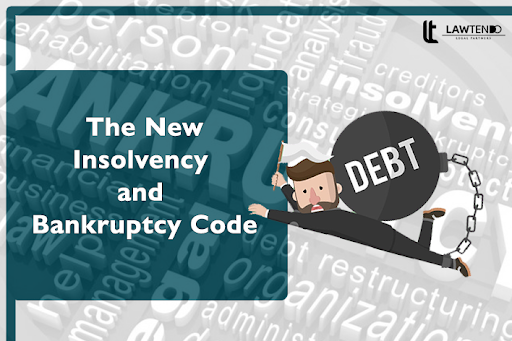What is insolvency and bankruptcy code?

Date : 20 Sep, 2019
Post By Sankul Nagpal
While some business organizations and undertakings flourish each day, there are some that fail to cope up with the changing trends of the market and succumbs to insolvency and bankruptcy. In such scenarios, the winding-up procedures are governed by the Insolvency and Bankruptcy Act which has recently undergone the much-required amendment. What is the IBC Act? The Insolvency and Bankruptcy Code is the supreme authority on bankruptcy law in India which aims to consolidate the existing framework by creating a single and unified law for insolvency and bankruptcy. The Code was introduced in the Lok Sabha on December 2015 by the Late Former Finance Minister Arun Jaitley. The code was passed and subsequently came into effect from 28 May 2016. The Bankruptcy code continues to serve as a holistic solution for resolving insolvencies which earlier was a long and delayed process that did not offer any economically viable arrangement. Latest Amendment of the Insolvency and Bankruptcy Act 2016 With an aim to remove delays and to smoothen the process of insolvency, the Insolvency and Bankruptcy Code (Amendment) Bill, 2019 was introduced in the Rajya Sabha by the current Finance Minister, Nirmala Sitharaman. With the amendment now inlined, the Code provides a timebound period for resolving insolvency of companies and of individuals. Key changes brought out by the Amendment Act 2019 The Amendment Bill of the IBC directly addresses three issues. First, it shall strengthen the provisions related to time-limits. Second, it shall specify the minimum payouts required for operational creditors in any resolution plan. Third, it shall specify the manner in which the representatives of a group of financial creditors shall vote. The key changes are: The Original Code provides that any resolution plan must ensure that the operational creditors receive an amount which should not be less than the amount they would have received in case of liquidation. The Bill amends this provision to provide that the amounts to be paid to the operational creditor should be the higher of: (i) Amounts receivable under liquidation, and (ii) the amount receivable under a resolution plan, if such amounts were distributed under the same order of priority (as for liquidation). Initiation of the resolution process As per the original Code, the National Company Law Appellate Tribunal must determine the existence of default within 14 days of receiving a resolution application. Based on its finding, NCLT may accept or reject the application. The new bill, however, states that in case the NCLT fails to find the existence of default and pass an order to that effect within 14 days, it must record its reasons in writing. Time-limit for the resolution process While the original Code stated that the insolvency resolution process must be completed within 180 days, and an extendable by a period of up to 90 days. The new Bill now adds that the resolution process must be completed within 330 days. This includes the time for any extension so granted and the time taken for legal proceedings in relation to the process. Thus, if any case is pending for over 330 days, the Bill provides that it must be resolved within 90 days. Representative of financial creditors While the original code specifies that, in cases such as when the debt is owed to a class of creditors beyond a specified number, the financial creditors will be represented by an authorized representative. The act also provided that these representatives will vote on behalf of the financial creditors as per instructions received from them. The New Bill now states that such representative will vote on the basis of the decision taken by a majority of the voting share of the creditors that they represent. LawTendo has around 15000+ lawyers across India in our platform. LawTendo strives to facilitate cost-efficient and quality legal service to our clients. You can contact us at +91-9671633666 or info@lawtendo.com.
Resolution plan





